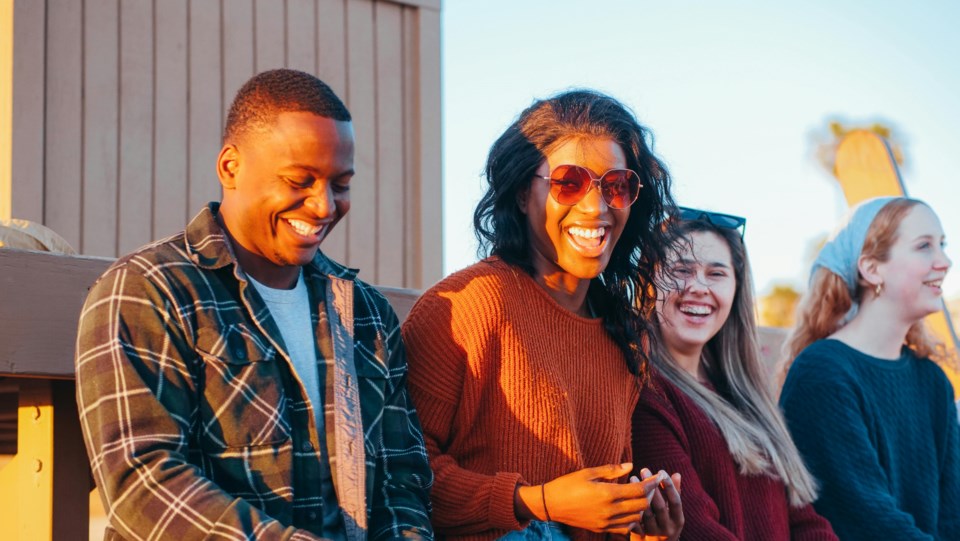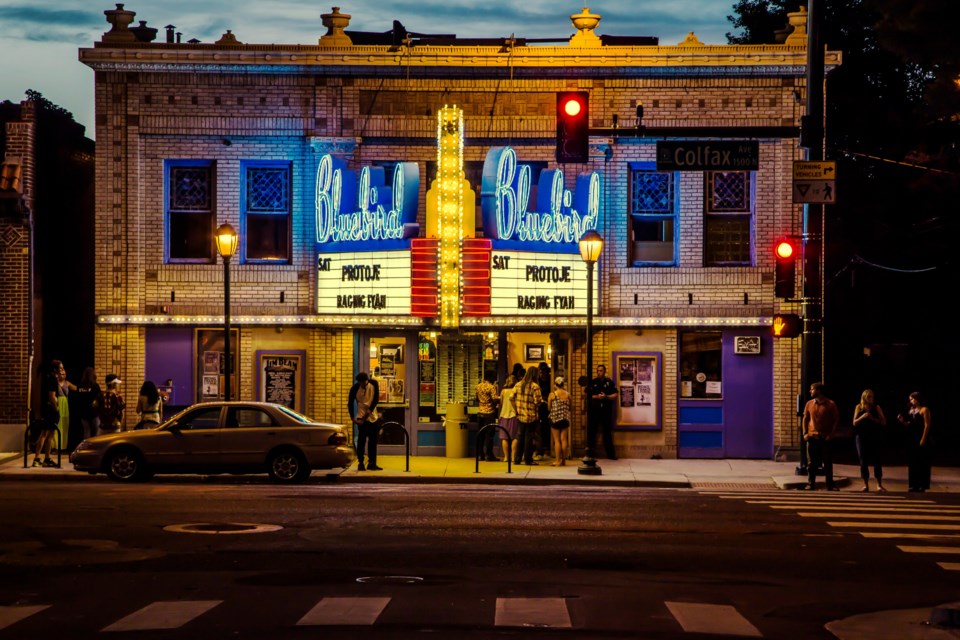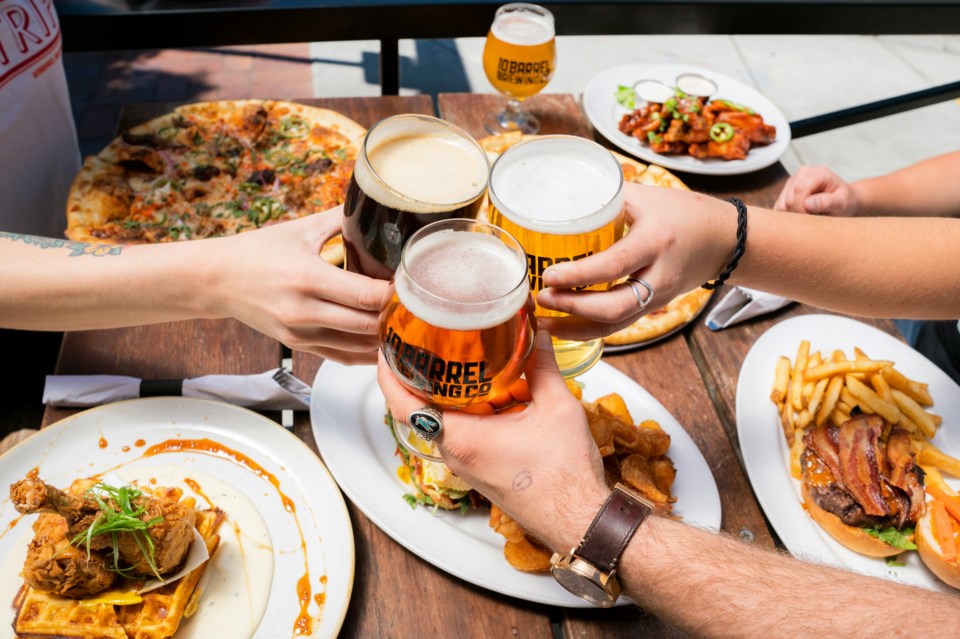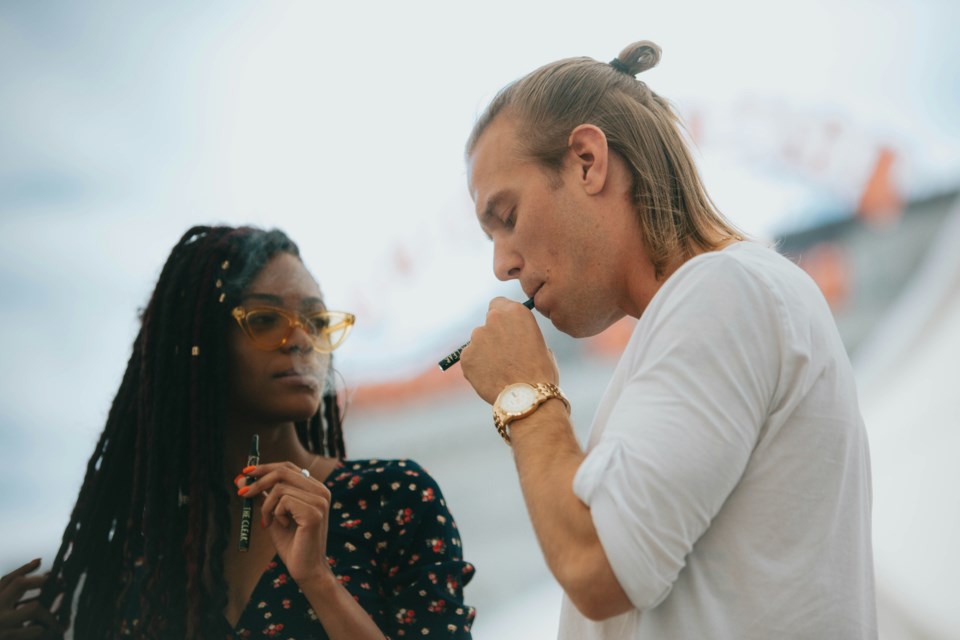Colorado is more than mountains and craft beer—it's a place with its own way of speaking. Whether you're new to the state or just passing through, you'll hear words and phrases that make you pause and smile.
Locals love their lingo, and knowing a few terms can help you blend in faster. From city nicknames to food quirks, Colorado slang reflects the state’s personality and pride. If you want to sound like a true local, here’s a guide to some of the most common and colorful expressions.
Colorado Slang Terms About People

Flatlander
A "Flatlander" is someone from lower altitudes or flatter states like Kansas or Nebraska. Locals use it to describe visitors who aren’t used to Colorado’s mountains or thinner air. Flatlanders often get teased for struggling with the altitude or getting winded easily. It's not always meant to offend—sometimes it’s just playful talk among locals.
Granola
When someone’s called “Granola” in Colorado, it means they’re super outdoorsy and eco-conscious. Think folks who hike, bike, camp, and shop at natural food stores. They’re usually wearing Chacos, sipping kombucha, and always talking about their next trail adventure. It’s a common personality type around Boulder and mountain towns.
Slopies
“Slopies” is a casual term for ski or snowboard enthusiasts who spend all their time on the slopes. These folks live for the powder and often work seasonal jobs just to stay close to the mountains. You’ll find them in ski towns like Aspen, Breck, or Vail. The name hints at their laid-back, thrill-seeking lifestyle. For many Coloradans, being a Slopie is a proud identity.
Denverite
A “Denverite” is simply someone who lives in or comes from Denver. But over time, it’s become more than that—it’s an identity tied to city pride, Broncos fandom, and a love for all things local. Whether it’s biking to work or sipping craft brews downtown, Denverites embrace a specific city culture. You’ll hear the term used often in local news, events, and even in social bios. It shows how tight-knit the capital city scene really is.
Native
In Colorado, being a “Native” holds special meaning. It refers to someone born and raised in the state—often generations deep. Natives are proud of their roots and tend to be protective of their Colorado culture. With the rapid growth and wave of newcomers, the term carries a badge-of-honor feel. You’ll even see Native bumper stickers around town.
Transplant
A “Transplant” is someone who moved to Colorado from another state—especially California or Texas. Locals use it to talk about the surge of people relocating to the area. While some Transplants blend in quickly, others get called out for not knowing the local ways. It’s a label you’ll hear a lot in big cities like Denver or Fort Collins. Whether it's said with frustration or friendliness depends on who you ask.
Trustafarian
“Trustafarian” is a mix of “trust fund” and “Rastafarian,” describing wealthy young people who live a laid-back, often hippie lifestyle. You’ll find them in places like Boulder, where they may dress casually and promote free-spirited ideas, despite having money in the bank. The term’s a bit tongue-in-cheek, pointing out the contrast between appearance and privilege. Still, it's part of the local color.
Gaper
A “Gaper” is a tourist or new skier who stands out on the slopes—usually because of bad form or fashion choices. The name comes from the way they gape at the scenery or leave a “gaper gap” between their helmet and goggles. Locals sometimes poke fun, especially during spring break season. But everyone was a Gaper once, so there’s a little kindness mixed in with the jokes.
Coloradoan
“Coloradoan” refers to anyone from the state, though it’s also the name of a newspaper in Fort Collins. Some people use it interchangeably with “Coloradan,” though opinions differ. Either way, it’s a word of pride for many locals. Whether born here or just loving the state’s lifestyle, calling yourself a Coloradoan shows your connection to this mountain-filled, sunshine-soaked place.
Peak Bagger
A “Peak Bagger” is someone who aims to climb as many mountain peaks as possible, especially Colorado’s 14ers. It’s a badge of honor in hiking circles and often involves keeping a personal checklist. These adventurers live for the summit photo and the thrill of beating tough trails. It’s not just a hobby—it’s a lifestyle. You’ll often hear them swapping trail stories and bragging about elevation gains.
Location-Based Colorado Slang Terms

RiNo
Short for “River North,” RiNo is a trendy Denver neighborhood known for street art, breweries, and creative spaces. Locals love it for its hip vibe and fast-growing food scene. Saying “RiNo” instantly makes you sound in-the-know. It’s one of the city’s coolest areas to visit or live in. Art lovers, foodies, and night owls all call it home.
Front Range
The “Front Range” refers to the urban area where the plains meet the Rocky Mountains, including cities like Denver, Boulder, and Colorado Springs. It’s where most Coloradans live and work. Saying you're from the Front Range quickly tells people you’re close to the mountains. It’s a popular term in weather reports and local talk. It’s also home to a blend of city life and outdoor fun.
Fourteener / 14er
A “Fourteener” or “14er” is a mountain that stands 14,000 feet or taller. Colorado has 50+ of them, making the state a hot spot for serious hikers and climbers. Locals talk about “bagging a 14er” like it’s a weekend to-do. It’s a badge of toughness and pride. For many, climbing all of them is a lifelong goal.
Mile High
“Mile High” refers to Denver’s elevation—exactly 5,280 feet above sea level. That’s one mile up, and you’ll see it mentioned all over town, from the airport to the Broncos’ stadium. Locals are proud of living high up, even if it makes baking a challenge. It’s a big part of Denver’s identity. Don’t be surprised if you feel a little winded at first.
Cap Hill
Short for Capitol Hill, “Cap Hill” is one of Denver’s oldest and most diverse neighborhoods. It’s known for historic homes, art scenes, and a lively, walkable vibe. Young professionals and artists often flock here. The name is used so often, most locals don’t even say the full version. It’s a go-to spot for culture and nightlife.
Dispensary
In Colorado slang, a “Dispensary” refers to a legal marijuana shop. These stores became common after recreational weed was legalized in 2012. You’ll see dispensaries everywhere, from small towns to city blocks. Locals often have their favorite spots. It’s just part of everyday talk now.
CBD
Not just the hemp compound, in Denver “CBD” also stands for the Central Business District. It’s the downtown area filled with offices, hotels, and city energy. When locals say “CBD,” they’re often talking about the busy core of the city. It’s where business meets hustle. A lot of events, parades, and meetups happen here.
High Plains
The “High Plains” describe the flat eastern part of Colorado, stretching toward Kansas and Nebraska. It’s drier, windier, and more open than the mountains. Locals from this area often have deep roots in farming or ranching. The term shows up in local news and weather. It's the quieter side of the state.
DTC
“DTC” stands for Denver Tech Center, a business-heavy area in the southern metro. It’s packed with offices, hotels, and chain restaurants. If someone works in tech or finance, chances are they’re based in DTC. The name gets used a lot in traffic updates or commutes. It’s not scenic, but it’s a big part of local industry.
Basin
“Basin” in Colorado slang can mean a ski basin—a bowl-shaped area on a mountain used for skiing. Locals might say “A-Basin” for Arapahoe Basin, one of the popular ski resorts. It’s part of mountain lingo you hear during winter. Skiers and snowboarders use it casually. If you know what it means, you're probably a local.
Local Bites & Brews: Colorado Food Slang Terms

Rocky Mountain Oysters
Despite the name, Rocky Mountain Oysters aren’t seafood—they’re bull testicles, usually deep-fried and served as an appetizer. They're a well-known “you gotta try it once” food in Colorado. Tourists often try them on a dare, but locals see it as a quirky tradition. You’ll spot them at bars, fairs, and even on upscale menus. Love them or not, they’re a part of Colorado's culinary identity.
Green Chile
Green Chile in Colorado is a serious thing—especially in the southern parts of the state. It’s a thick stew made with green chiles, pork, and spices, often poured over burritos, fries, or eggs. Locals argue about which place serves the best version. Unlike New Mexico’s green chile, Colorado’s version has its own flavor and fanbase. It’s a must-have if you want the real local taste.
Colorado Bulldog
A Colorado Bulldog is a creamy cocktail made with vodka, coffee liqueur, cream, and cola. It’s similar to a White Russian but with a fizzy twist. You’ll find it at local bars, especially among those who love a sweet, smooth drink. Despite the name, it’s not super common—but still carries that local flair. It’s definitely a conversation-starter at any party.
Denver Omelette
This hearty breakfast dish includes ham, bell peppers, onions, and cheese folded into fluffy eggs. Known across the country, the Denver Omelette has its roots right in the Mile High City. It’s a diner classic, often served with toast or hashbrowns. Locals love it for its comfort and simplicity. It's one of the most recognized food exports from Colorado.
Denver Sandwich
Think of it as the omelette’s cousin—the Denver Sandwich features the same ingredients but served between slices of toasted bread. It’s a throwback meal, often seen in old-school diners or lunch menus. The exact origin is debated, but it’s clearly tied to Denver’s food scene. It’s filling, no-fuss, and full of flavor. A local favorite for a quick bite.
Colorado Kool-Aid
No, it’s not the stuff from childhood. Colorado Kool-Aid is slang for Coors beer, which is brewed in Golden, Colorado. Country songs have mentioned it, and locals use the term with a wink. It’s a nod to the state’s brewing history and cowboy roots. Whether you're at a dive bar or a tailgate, asking for Colorado Kool-Aid brings a smile.
Denver Steak
The Denver Steak is a tender, beefy cut taken from the chuck section of a cow. It was “discovered” by the Colorado Beef Council as a hidden gem, often overlooked by butchers. It’s juicy, flavorful, and more affordable than prime cuts. Locals love it grilled or pan-seared. While not as famous as ribeye, it’s gaining attention nationwide.
Everyday Terms: More Unique Colorado Slang

Donkeys
In Colorado sports slang, “Donkeys” is a playful (and sometimes annoyed) nickname for the Denver Broncos. Fans and rivals both use it, especially when the team is having a rough season. It’s usually said with some tough love. Despite the teasing, Broncos loyalty runs deep. Win or lose, the Donkeys still have a huge following.
Four-Twenty / 420
Colorado was one of the first states to legalize recreational marijuana, and “420” has become part of the local language. It’s shorthand for cannabis culture and even the time of day (4:20 p.m.) when people light up. April 20 (4/20) is practically a holiday here, with festivals and gatherings. Locals toss around the term casually, especially in Denver and Boulder. It’s as normal as talking about the weather.
303
“303” is the area code for Denver and the surrounding metro area. Locals use it as a badge of pride, often saying things like “I’m reppin’ the 303.” It shows up on stickers, shirts, and bumper decals. For longtime residents, it’s a symbol of being here before the area started booming. It's one of those simple numbers with a lot of hometown weight.
Avs
Short for the Colorado Avalanche, “Avs” is how locals refer to the state’s beloved NHL team. Whether you’re heading to a game or just talking hockey, everyone calls them the Avs. The team has a loyal fanbase and a few Stanley Cup wins under their belt. During playoffs, Avs gear takes over the streets. It’s one of the state’s most popular teams.
Rox
“Rox” is the nickname for the Colorado Rockies baseball team. Locals love going to games at Coors Field, especially when the weather’s nice. Even if the team isn’t always winning, the Rox bring the city together every summer. You’ll hear fans using the name casually, like “Rox game tonight?” It’s part of Denver’s everyday talk.
Colorado Cologne
This funny phrase refers to the strong scent of weed that can be smelled in some parts of Colorado—especially in cities like Denver or Boulder. Locals joke that it’s the new normal, thanks to legalized marijuana. You might hear someone say, “Smells like Colorado cologne out here!” It’s a light-hearted way to talk about something that’s become part of daily life.
Texas Gore-Tex
This is a humorous jab at out-of-staters—usually Texans—who visit Colorado wearing brand-new outdoor gear that’s barely been used. Locals poke fun at how overdressed these visitors can be, especially when it’s not that cold. The term suggests they bought fancy gear just for the trip. It’s said in a joking way, but it’s definitely a known phrase in ski towns.
Smell of Greeley
Greeley, Colorado is known for its meatpacking plants, which give off a strong odor that locals call “the smell of Greeley.” It’s a mix of farm, factory, and something hard to describe. Even people from nearby cities recognize it immediately when driving through. Locals are used to it, but visitors usually comment right away. It’s a running joke across the state.
Denver Boot
The “Denver Boot” is that big yellow clamp that gets put on your car when you have too many unpaid tickets. It was actually invented in Denver! Now, cities across the world use it. Locals still call it the Denver Boot, no matter where they see it. Getting one isn’t fun—but it’s definitely a piece of Colorado history.
Nuggs
“Nuggs” is short for the Denver Nuggets, Colorado’s pro basketball team. Locals often say “Let’s go Nuggs!” during game nights. After their recent championship win, the name got even more love. It’s a fun, easy nickname that shows pride in the team. You’ll see it on shirts, signs, and in chants all over the city.
Wrapping Up Your Colorado Slang Starter Pack
Learning Colorado slang is a fun way to connect with the locals and understand the culture of the Centennial State. These unique terms reflect the outdoorsy lifestyle, love for sports, and quirky pride that Coloradans carry with them. Whether you're chatting with a Denverite or heading up a fourteener, speaking the lingo helps you feel right at home. So next time you're in Colorado, throw out a phrase or two—you might just pass for a native. Colorado slang isn't just language, it's part of the adventure.


